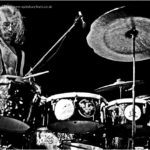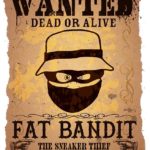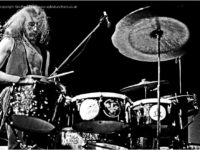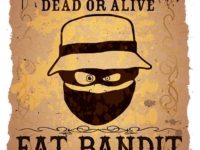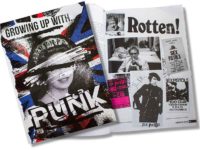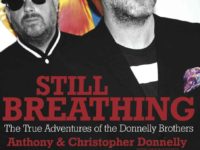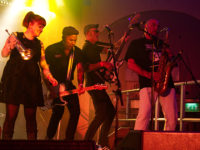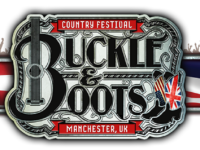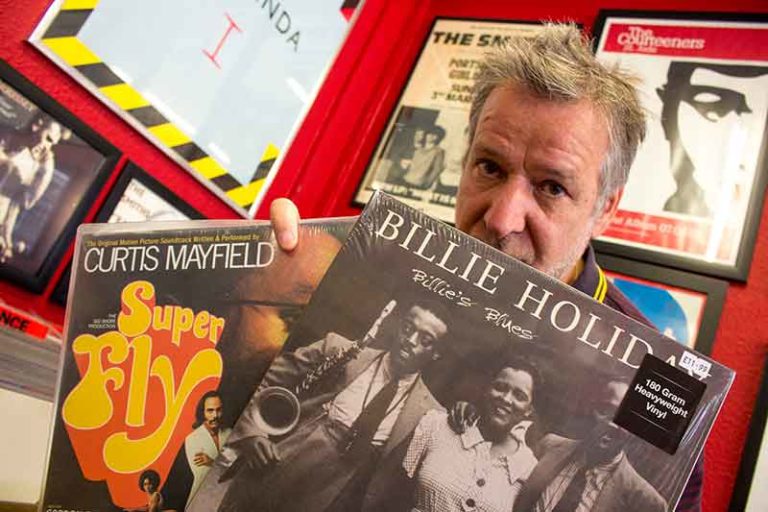Pete Mitchell was born in Crumpsall, Manchester
He has written and presented shows and documentaries for Manchester’s Piccadilly Radio, Key 103, BBC Radio 2, BBC 6 Music, 5 Live, Radio 4, Xfm, Virgin Radio and Absolute Radio.
His documentaries have been broadcast in America, Canada, Australia and Asia. Pete has also written for the Radio Times, Manchester Evening News, Daily Star, Daily Express and Q magazine.
Mitchell began his career in 1986 working for Red Rose Radio in Lancashire. In 1989 he moved over to Manchester’s Piccadilly Radio – which became Key 103, during this time he presented, developed, wrote and produced IQ, a specialist music feature based around guests and live bands. He’s been instrumental in promoting the indie bands of the “Madchester” scene, such as Oasis, Inspiral Carpets, James, Badly Drawn Boy, 808 State and Happy Mondays.
Pete produced and presented the Radio 2 documentary I’m on My Way, on Northern soul star Dean Parrish.
When Motown celebrated its 50th birthday. Pete presented a host of features marking the milestone.
Pete’s series Hitsville USA: 50 Years of Heart & Soul on Radio 2 was (Quote – the Radio Times) “a nourishing insight into the label’s rare treasures.
Sat in the busy Koffee Pot shop that has been frequented by Mancunians before coffee was cool, I asked Pete a few questions…
How did it all begin?
I got into soul as a kid, it was my mum’s brothers and sisters, they were teenagers when I was small and the music in the house was quite an eclectic mixture. I heard South Pacific, The Sound of Music, Beatles and Stones as well as Motown, Stax and Atlantic. They would pass on scratched copies Motown records to me, I’ve still got those copies. One of them was ‘In and out of love’ Diana Ross and the Supremes from 1967. It was very ‘pop’ and wasn’t that good but it had a lot going on in there and it’s snapshot of the time for me, but what also did, was open up the door to the world of soul and from that day on, I collected soul and funk – the music of Black America.
The Dave Christian Soul Show on Radio Luxembourg was a soul show where I heard the likes of the Temptations etc. Broadcasting from the Grand Duchy on AM, it would drift in and out, I think they called it ‘fade’, which made it all sound very strange.
Tracks like Cloud Nine and Ball of Confusion, for instance, were weird enough to begin but with added transmission interference, it sounded like it was coming from outer space. At the time, I didn’t realise how clever these tracks were, with the sonics of the bass, wah was and echoplex effects, it was all very apocalyptic, a bit eerie. It still sticks with me.
The guys who recorded all the backing tracks for all the Motown greats were The Funk Brothers, they were amazing. Robert White, Benny Benjamin, James Jameson, Uriel Jones, Jack Ashford, Joe Messina amongst many others were tip-top session musicians. They even found time to moonlight on other labels, they worked on the backing track for Jackie Wilson’s Higher and Higher, its the bass line that gives it away in an instant. The Funk Brothers went up to Chicago to record it and had to hide the fact that they were recording with Berry Gordy’s best friend. The story is that they got fined for doing it. They were only being paid $7.50 to $25.00 per track by Motown. You know, in quite a few tracks there are two sets of drums and two bass lines, but one payment. Berry was a businessman If Berry fell out with you, he’d let you know. Didn’t matter who you were, or thought you were. Diana Ross, you don’t think you want to sing this? Here’s Valerie Simpson until you behave. Listen to the demo of ‘Ain’t No Mountain High Enough’ by Valerie Simpson its equal to Diana’s version.
Speaking of Diana Ross… ‘Where did our love go’ is in the National Congress Library in America as one of the most important records of all time, why? Because it was a black artist, on a black record label bought by white people, it was a breakthrough track, which was way more important than the technical merits, or not, of the song itself. It isn’t soul or funk, it’s pop, pure and simple – but without that, they wouldn’t have had the money or exposure to do the more experimental stuff later on. Frank Wilson (Do I love you fame) started to write slightly differently, R Dean Taylor and Norman Whitfield, helped radicalize the label, there were certainly several periods of Motown, if you listen to ‘Going to a Go-Go by the Miracles, there’s definitely something sonically changing, by the time you get to 1968 we have ‘Cloud Nine’, Edwin Starr’s ‘War’ then The Four Tops doing concept albums like ‘Still Waters’ then you get to Marvin Gaye’s ‘What’s Going On?’ which is arguably Motown’s finest hour. Some were radical right from the start. Barrett Strong’s ‘Money’, that’s the archetypal Motown record and it’s subversive too and set the Motown wheels in motion.
There were factions within factions at Motown. Whilst the Temptations pointed out the ills of society, Smokey Robinson would be writing something completely different. Social commentary just wasn’t his thing, but he’s a superlative writer, arranger and singer at any level you care to mention.
You’ve also got to take account of when these great albums were made. It was the height of the Vietnam War, America wasa turmoil of social exclusion and racism – these albums were an eloquent, heartfelt way to get the message out there, not only in America but also across the whole planet.
I’m still fascinated by the Civil Rights Movement of the 1960s, and anything I can find, or get to read about that, I will do. What I don’t particularly like is the sugar-coated, conveyor belt Motown stuff, you know, the boy-girl – moon – June tracks. I prefer those with the socio-political commentary and message.
Stax had some of those, slightly different in sound – it was a bit grittier and slightly slower in my opinion, they had more of a groove going on. Like Motown, Stax wasn’t that political when it began, but they all evolved. They had great people Like Rufus Thomas and Steve Cropper – who I’ve had the pleasure of speaking to a few times. The Stax story is great if you ever get a chance to read it.
In the late sixties to mid-seventies, the British working class rescued Soul music, by the Northern Soul and club scene. It’s a weird one and I’ve thought about it a lot – in fact, I’m sure there’s a book to be written about it. I’ve not seen anybody getting near as to why the North of England, Manchester (in particular) could connect as much as it did with Detroit and Black America? Apart from the obvious of them being put down, working-class, industrial cities, but I still find it strange, how British working-class people resurrected the careers of the rare soul scene?
Looking back, there are many explanations, US airbases and Northern ports were critical in the dissemination of the rare discs. Geno Washington and Herbert Gaines were GI’s stationed in Britain, they could sing they’re own brand, they got linked to Georgie Fame and off they went. There wasn’t a ‘value’ on records as there is now. Back then, Roger Eagle would be on the phone to his mates in Chicago and ordering this that and the other. They would send them over by airmail, which took weeks. Roger would then try them out at The Twisted Wheel, or he’d listen to discs down the line and order them from that. That was how it worked. It wasn’t that there was a high value on the records per-se, it was the fact that they just weren’t around, they just weren’t readily available for the general public – and also the method of exposure was nowhere near as accessible as it is today.
The rare soul scene then was totally different than today… They’d be swapping or reselling records to each other with an extra 30p on top, nothing like today, it’s all way too inflated. Personally, in today’s market, I’ve got quite an expensive collection, but its one I’ve built up through the years, I’ve never collected a single one on price, ever. For instance… I bought Yvonne Baker ‘Didn’t say a word’ released on British Brunswick here for 50p – a British copy of which is now £80 or £90, OK that’s not a great deal of money on the soul scene, but it gives you an example of how records have inflated in price. I wouldn’t sell it anyway and it’s not mint, but it illustrates a point. Nevertheless, to me, it’s a precious piece of vinyl because it’s a great record.
When you get into an artist or track, what happens is you’ll become a bit of a music detective. You’ll hear something and you’ll want to dig out more, that leads you back into their vaults. Van McCoy, probably most famous for ‘The Hustle’ 70’s disco type track, but if you listen to the stuff he did earlier with Jackie Wilson, Betty Everett, Gladys Knight, Sandi Sheldon, the Spellbinders, David Ruffin, and the Starliters. You can hear his DNA, through them all.
Going back further, you’ll end up listening to blues and gospel, because if there was no gospel, then there’d be no rock ‘n’ roll, no soul, nothing. All the greatest of the greats came from the church. Aretha franklin – even her ‘pop’ records are gospel with a message. Respect, that’s a pure gospel sound and lyric. Remember, there was the acknowledgment of this fact in the Blues Brothers movie where James Brown played a pastor. Ray Charles – What’d I say? Pure church. It’s black gospel re-written and re-molded to get the black way of life into mainstream American culture, I suppose. All part of the melting pot.
The search for soul music never ends and of course, this leads me to the Wigan Casino.
I was a member of the Wigan Casino, I went to Tiffany’s in Rochdale, Diamond Lils and Blackpool Mecca, Glossop Soul Club on a Thursday night was my regular, I’d get up there – and the Ritz in Manchester on bank holidays… I think I went to them all. I’m not saying these were all life-changing experiences, some of them were terrible, but I’ve made mates.
I was there in the period of ‘I’m on my way’ and ‘Three before eight’; even so, I don’t look at The Casino period through rose-tinted spectacles. A lot of it was a bit of a joke; a lot of rubbish was played, awful… The Allnight Band. Wigan’s Ovation. Dreadful. The last night of the Wigan Casino…happened four or five times, it was becoming a bit like the DFS sale. People were paying overprice for no-good re-pressings. The kids were being ripped off.
At the time I was also into Bowie, T-Rex, Glam and then Punk came along. People think you should be a die-hard, that you shouldn’t drift too far from one particular scene – the Adidas bag and Baggies down to Wigan, which is a great thing, but I think I was a bit more eclectic. I need to underline that when I was going to the Casino, I was also listening to ‘Never Mind The Bollocks’ by the Pistols. It was music, a whole of music, which has given me a great grounding and base of knowledge in my career.
I can talk to the likes Larry Graham (Sly and the Family Stone) about bass playing and talk to him about Little Willie John and it just works, you can get into people by just a love of rare or obscure soul records too, Ian Brown and James of the Coral, to name but two.
I was part of the pre-Madchester, Hacienda scene as well. The early punk stuff was great. I love John Cooper-Clark as much as I love Smoky Robinson, no difference, it’s all music, I can listen to Sinatra and then switch on the Aphex Twin.
My careers been successful because of soul music – somebody’s always got the record or reference. You talk to a music lover about Benny Benjamin, Jack Ashford, great guitarists like Robert White, Dennis Coffey, or the excellent James Jamerson, all of these people – and someone will get it.
I don’t know how unique Manchester is, but it’s always been a bit of a melting pot, the music from the Madchester scene, you can easily trace back the influences – and you tend to find that the kids in the clubs are not only listening to Madchester, but would have some soul, punk and the like kicking about their own collections too… What was it Tony Wilson said? The kids in Manchester have the best record collections. What we also had was a healthy 60’s club culture, and as usual from Manchester, something begins.
London had the Marquee, the Flamingo as well as a number of other great places, but by the early 70’s soul had been pushed aside for prog rock and glam. I also think that soul stuck in the North because the culture of Manchester was smaller, and the outlying towns like Burnley, Oldham and the like, had their own little local scene on a Friday and Saturday night, you could always find a record stall on a market, or a tiny record shop and build up a collection relatively cheaply.
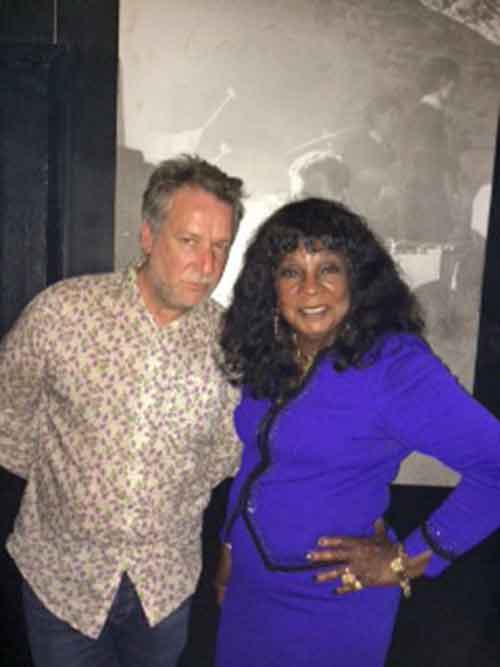 Martha ReevesWas it through the radio work you got involved in the Manchester scene or was it that the Madchester scene happened whilst you were on the air?
Martha ReevesWas it through the radio work you got involved in the Manchester scene or was it that the Madchester scene happened whilst you were on the air?
I always wanted to get on the radio, and strangely as it seems, it was probably through DJ’s like Tony Blackburn (who had his own foray out into cutting ‘Northern’ vinyl, but we’ll forgive him that), one big influence was Tony Michaelides who had his own show after mine on a Saturday afternoon. He was a record plugger who would pass on some amazing records to me. One of the main reasons to get on the radio was to get free records. It was around the mid-eighties when I got my break, back then, there were bands like the Chameleons knocking about, they were kind of a pre-cursor to the Manchester scene kicking off. World Of Twist are one of the great lost Manchester bands, sadly forgotten and overshadowed by the Stone Roses and the Mondays. I can still listen to the Mondays and get excited. Having said that, I love the Hollies too. The Stone Roses were very much like them in ethos, the jangly guitars and Byrd’s influence. Ian Brown’s a big soul fan. Whether it’s a Mancunian sensibility or not, I don’t know. Would we be sat here having this conversation if I was born in Leicester? Probably not. Stoke? possibly, as they had their own soul scene. Hull. No. Maybe Glasgow. Are we any different to Brummies? Wolverhampton? I’m not sure, in London? London is like a lot of very different villages with their own vibe going on. Going back to Wolverhampton and the Black Country, they had their own scene, Ozzy Osbourne, Noddy Holder and Slade (they started off as Ambrose Slade), Chas their manager gave them the haircut and Skinhead look. Noddy had the vocals; he’s probably one of the best vocalists this country has ever produced. His heroes are people like Little Richard, Ray Charles, Aretha Franklin, and Stevie Wonder. Could it happen elsewhere? For me, the midlands is probably the closest, as they had the Reggae scene there. If you strip out the beat of Reggae, then you’re left with soul music. Listen to Toots and how soulful he is. Johnny Nash crossed over from reggae to soul and back again. All the Trojan and Studio One releases can sit right alongside the Motown, no problem. It connects and it all goes round in circles, usually at 45rpm.
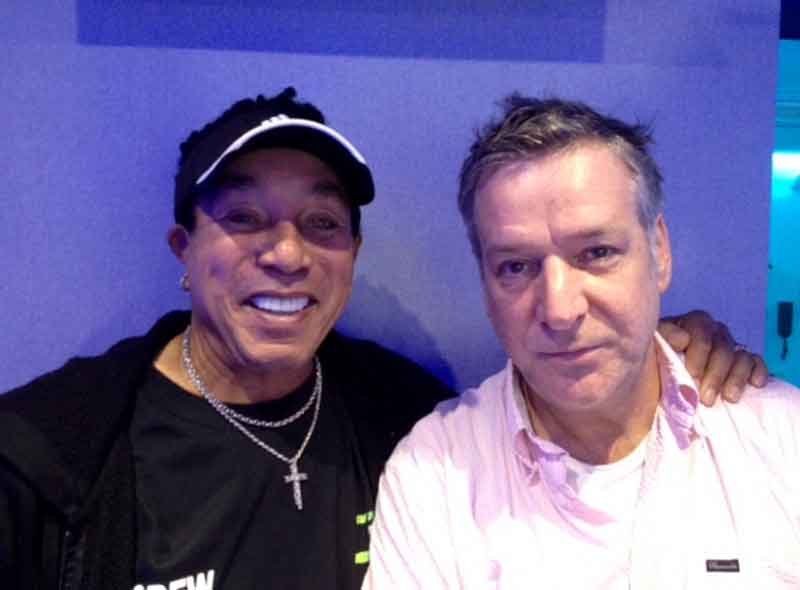 Smokey RobinsonI’ve been lucky in my career that I’ve been able to meet some of the people I’d always admired. One, in particular, will ring true with the Soul boys. I’d just done all the Motown stuff for the BBC and it had gone down well, so I put some more ideas in, I said I wanted to do a thing on Dean Parrish, no-one at the BBC knew who he was. He was found through Eddie Pillar at Acid Jazz when he did the track ‘Left, right and centre’. We spoke to Dean, we got on, so we flew out and we stayed in the upper west side of New York, It was Dermot O’Leary’s company, so the missus, me and a couple of others went over, where we then we met Vanilla Fudge and Maxine Brown. We met up with Dean and became friends. We ended up flying over again, then we went out had some cold drinks, I’ll leave that night there. He still sings, not Northern Soul necessarily, though he still does that. Dean’s appeared in the Sopranos. We got on so well; we were invited to his daughters wedding out on Long Island. By the same token, I’ve been lucky enough to hang out with the Velvelettes, Kim Weston, the Funk Brothers, Four Tops, Temptations and Smokey Robinson and it’s always been fascinating to meet them all.
Smokey RobinsonI’ve been lucky in my career that I’ve been able to meet some of the people I’d always admired. One, in particular, will ring true with the Soul boys. I’d just done all the Motown stuff for the BBC and it had gone down well, so I put some more ideas in, I said I wanted to do a thing on Dean Parrish, no-one at the BBC knew who he was. He was found through Eddie Pillar at Acid Jazz when he did the track ‘Left, right and centre’. We spoke to Dean, we got on, so we flew out and we stayed in the upper west side of New York, It was Dermot O’Leary’s company, so the missus, me and a couple of others went over, where we then we met Vanilla Fudge and Maxine Brown. We met up with Dean and became friends. We ended up flying over again, then we went out had some cold drinks, I’ll leave that night there. He still sings, not Northern Soul necessarily, though he still does that. Dean’s appeared in the Sopranos. We got on so well; we were invited to his daughters wedding out on Long Island. By the same token, I’ve been lucky enough to hang out with the Velvelettes, Kim Weston, the Funk Brothers, Four Tops, Temptations and Smokey Robinson and it’s always been fascinating to meet them all.
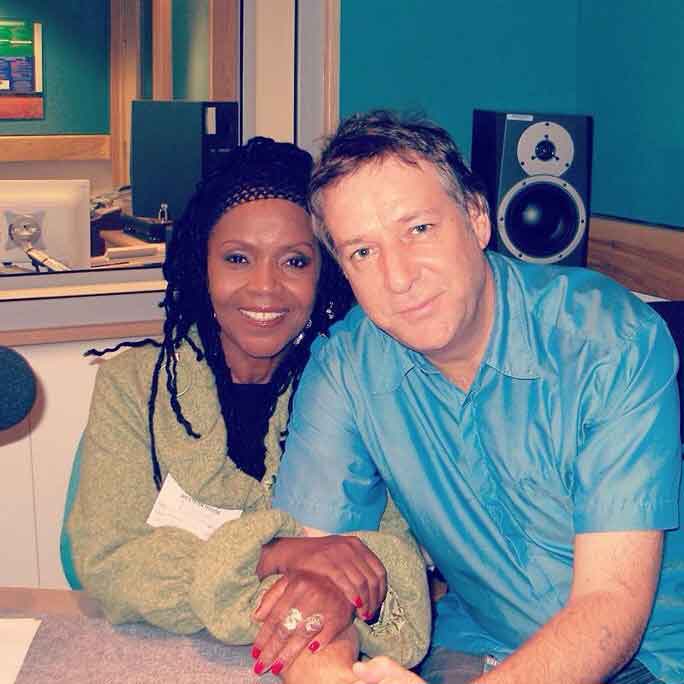 PP Arnold
PP Arnold
In summary? From all the people I’ve met, and all the music I’ve listened to, what your left with is this… There’s not much difference between Little Richard, James Brown or the Beatles, Rolling Stones and Joy Division, it’s attitude, outlook, passion and the protection of a scene, friendship, and loved ones.
Listen up children and get yourself some education from a guy who really knows his stuff…
Pete’s recommended top twenty to start you off into the world of soul.
Pete Mitchell’s 20 Essential Soul & Funk Tracks
Marva Whitney – You Got To Have A Job
Betty Davis – Soul Is Tired
Frankie Beverley – If That’s What You Wanted
Impressions – We’re A Winner
World Column – So Is The Sun
Undisputed Truth- Ball of Confusion
Lynn Collins – Things Got To Get Better
The Parliaments – Good Old Music
Little Willie John – I’m Shakin’
Marlena Shaw – Woman of the Ghetto
Lee Dorsey – Four Corners
The Exits – You Got To Have Money
Chester Randle’s Soul Senders – Soul Brothers Testify
MVP’s – Turning My Heartbeat Up
James Brown – Get Up,Get Into It, Get Involved
Ray Charles – I Don’t Need No Doctor
Jack Mc Duff – Ain’t It
Etta James – I’m So Glad
Dyke and the Blazers – We Got More Soul
Dusty Springfield – What’s it Gonna Be
Pete’s broadcasts are available online and you can also keep updated on his searches and revelations via…
http://www.thisdayinmusic.com/
Twitter@petemitchelldj
[zombify_post]

